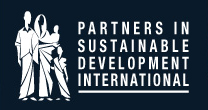Child marriage in Bangladesh: Does a vacuum exist within the law?
PSDI is sharing this blog post from the website of BRAC, a large nonprofit in Bangladesh who is helping to eradicate poverty. http://www.brac.net/
Bangladesh has the highest prevalence of child marriages in South Asia. Currently, there are 38 million girls who were married before their 18th birthday in Bangladesh. 13 million of those girls were married before the age of 15.
Shefali Begum loved going to school. She dreamt of graduating one day, being independent and earning to take care of her parents. Recently, she was married. She was a student in the 8th grade – and lived in poverty. Her family decided this was the best course of action for everyone. At 14, Shefali’s marriage meant she could no longer attend school. Girls often have to take up household responsibilities after marriage, and schooling takes a back seat in Bangladesh.
Bangladesh has made great strides in its efforts to combat child marriage, as a result of work done by the government, supported by non-governmental organizations and a wide range of others. Despite this, it has the highest occurrence of child marriage among South Asian countries, ranked by UNICEF in 2020. Globally, Bangladesh ranks eighth in countries having the highest number of child marriages.
Registering a child marriage in Bangladesh does not have a clear legal process. If any girl below the age of 18 gets married, then it falls under the purview of the Child Marriage Restraint Act 2017, which outlaws the marriage of girls below the age of 18.
However, the Child Marriage Restraint Act 2017 has an exception clause (Section 19) which allows child marriage under exceptional circumstances. Such a marriage will have to be certified as ‘exceptional’ by the court and requires parental consent. This law is heavily reliant on documents that prove the age of the bride is above 18.
In most cases of child marriage, the parties involved cannot complete the formal registration due to lack of documents to prove age. The couple completes the religious formalities and starts having a conjugal life, with the promise of marriage registration when the girl turns 18.
In case of separation, the child bride cannot file a case to obtain remedy. The court does not accept such cases, as the marriages were not legal and lack evidence of proper documents. If the marriage results in the girl becoming pregnant, she is then left with no solutions to the child’s maintenance and inheritance rights. These are some of the examples of the legal vacuum in Bangladeshi law.
There are solutions to this existing problem:
1. There should be efforts to create awareness and empower girls to negotiate, prevent and report on child marriages. Awareness sessions need to be conducted at educational institutions (from Class 7-9) to create an enabling environment for young people.
2. Non-governmental organizations should engage in constant dialogue with adolescents, parents, and particularly fathers, who are critical in making these decisions.
3. Social protection and financial support should be initiated for parents who think that marrying off girls is a better economic option in the face of poverty.
In keeping with the Prime Minister’s pledge to end child marriage, the Government of Bangladesh has launched a National Action Plan in 2018 and has undertaken several initiatives to prevent child marriages. With its partners and stakeholders, the government aims to eliminate child marriages in Bangladesh by 2041.
Meeting the SDG target to end child marriage by 2030, or the national target to end child marriage by 2041, will require a major push from the government and development practitioners. It will take strong, consistent and collaborative efforts to ensure that girls like Shefali will not have to sacrifice their futures to the repercussions of child marriage.
Karishma Mahfuz is a deputy manager of communications at BRAC Human Rights and Legal Aid Services.
PSDI’s health initiatives in the areas we serve include educational outreach sessions around important health issues, including child marriage. 11,085 people participated in these sessions in 2020. Help us continue these efforts by making a donation here.
